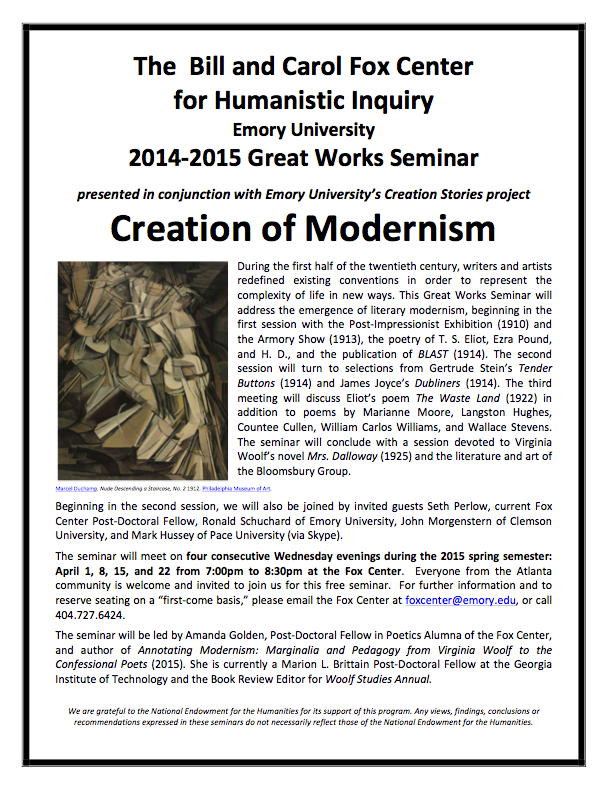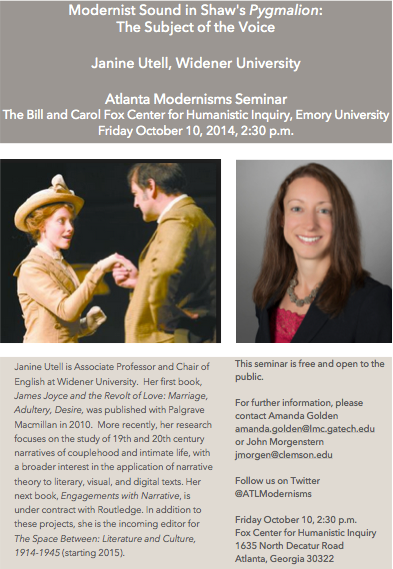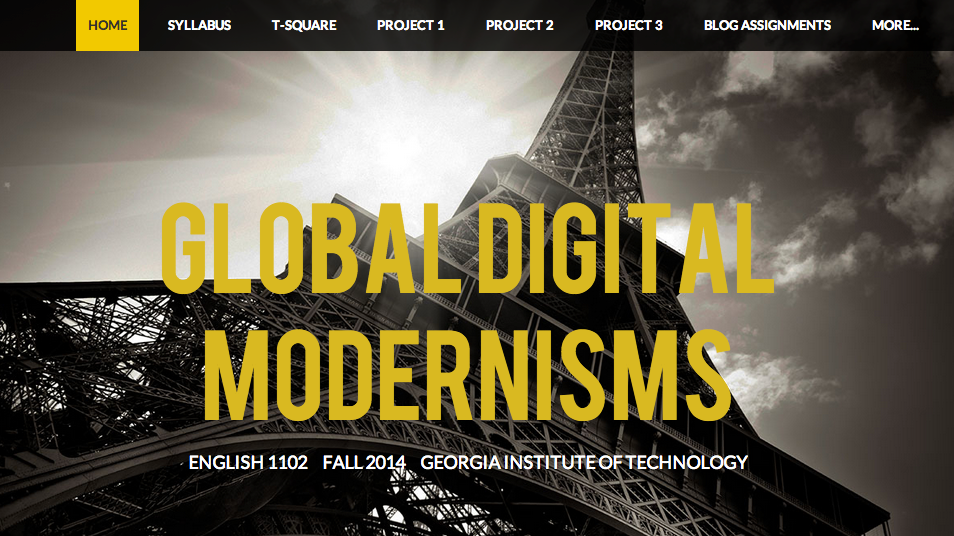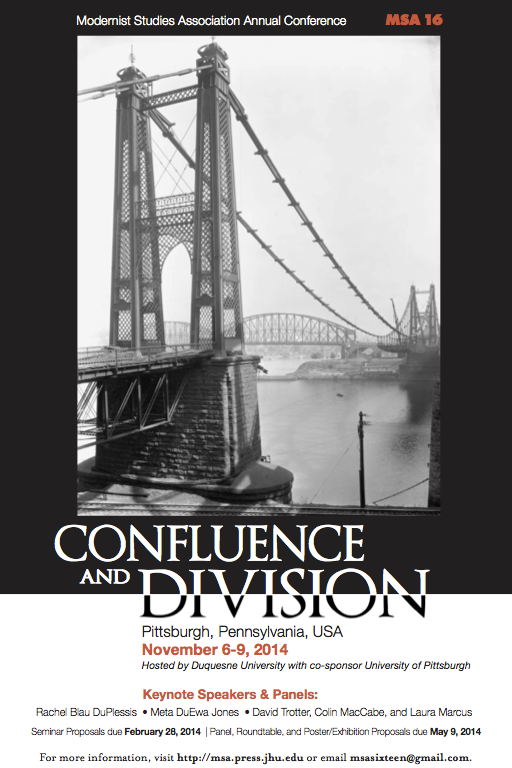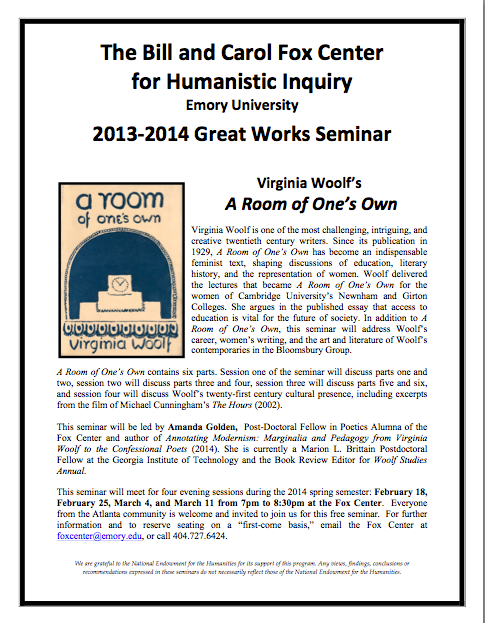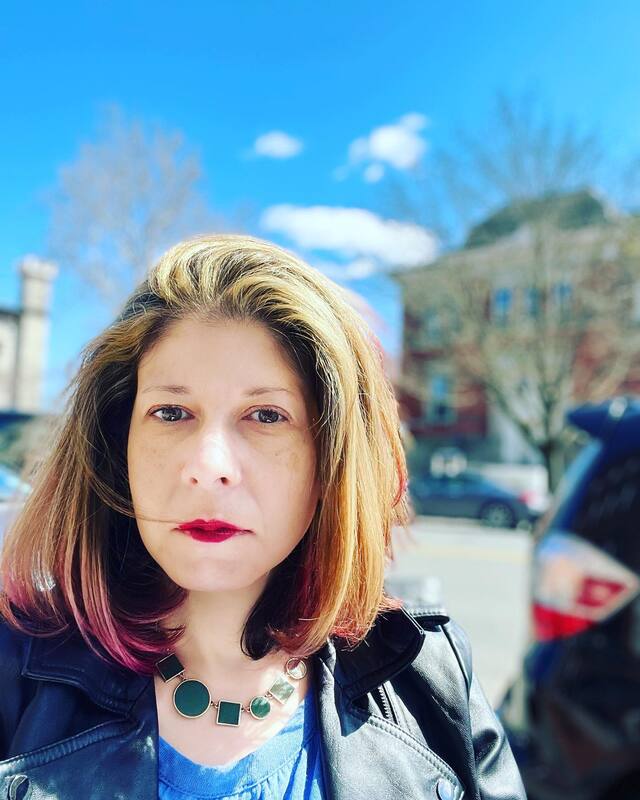|
This spring, I will be leading a Great Works Seminar called "Creation of Modernism" at Emory University's Fox Center for Humanistic Inquiry.
0 Comments
The Atlanta Modernisms Seminar will be hosting a presentation by Janine Utell, Widener University, "Modernist Sound in Shaw's Pygmalion: The Subject of the Voice," on October 10 at 2:30 pm at Emory University's Bill and Carol Fox Center for Humanistic Inquiry. All are welcome. For further information about this event or Atlanta Modernisms, please contact Amanda Golden [email protected] or John Morgenstern [email protected].
Modernist Sound in Shw's Pygmalion: Th Subject of the Voic The website for my fall course at Georgia Tech, Global Digital Modernisms, is live. Stay tuned for updates.
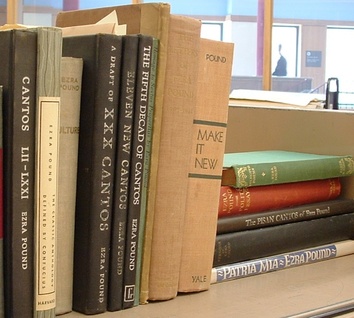 My article "John Berryman at Midcentury: Annotating Ezra Pound and Teaching Modernism" has been published in Modernism/Modernity and is available on Project Muse. It begins with Berryman's annotations in his personal copies of Pound's poetry while preparing an edition of Pound's Selected Poems in order to examine the ways that his approach to teaching modernism in Humanities courses at the University of Minnesota from mid-fifties through the mid-sixties was Poundian in its comprehensiveness. This article is part of a longer chapter in my book, Annotating Modernism: Marginalia and Pedagogy from Virginia Woolf to the Confessional Poets (Ashgate, 2015), and it is the first treatment of Berryman's annotating strategies alongside his teaching materials. This article considers books in Berryman's personal library and his teaching notes at Minnesota as well as the Classicist Van Meter Ames's transcriptions of Berryman's modern poetry lectures at the University of Cincinnati in 1952, which are part of John Haffenden's Papers at Columbia University. The image to the left is of Berryman's Pound books from his library at Minnesota. I discuss these volumes in greater detail in Annotating Modernism. Please join us for a roundtable addressing the Digital Humanities and the Harlem Renaissance organized by Suzanne Churchill for the Modernist Studies Association Conference this November in Pittsburgh. The participants include Bryan Carter, Lucy Mensah, David Chinitz, Jon-Christian Suggs, Miriam Thaggert, and myself. I will be discussing the digital resources that the students designed in my "African American Literature: From the Harlem Renaissance to the Digital Present" course at Georgia Tech.
My presentation will introduce tools and applications that we used to explore texts in class and the ways that students' projects engaged them. Some students, for instance, used mapping technologies to reassess the period. A paradox of using mapping technologies is that despite the ease of quickly being able to locate places, we can only see limited views. During the twenties, the aura and allure of Harlem was also imprecise. As students and scholars, we seek in images and phrases to understand the imprecision of ideas. At times, the students' maps provided a means of organizing information and a visual landscape. When we later read Pearl Cleage's novel of the Obama Campaign set in Atlanta, Till You Hear From Me (2010), the female protagonist refers to Abernathy Avenue of Atlanta's West End as a version of Harlem's 125th Street. Without having mapped Harlem, the students might have understood this allusion, but having done so, they were better able to understand the significance of history at street level and the ability of locations to shape our cultural imagination. In her presentation "The CODEBREAKER: Edith Rickert, Virginia Woolf and Modernist Intrigues," the Australian artist and scholar Suzanne Bellamy argues that Rickert's research at the University of Chicago in the 1930s presents an early version of twenty-first century digital approaches to Woolf's fiction. In the clip below from Bellamy's recorded presentation for the Annual Conference on Virginia Woolf in the beginning of June, Bellamy cites the Mapping Jacob's Room project from my English 1102 "Digital Woolf" course at Georgia Tech. You can learn more about Bellamy's art and work here. 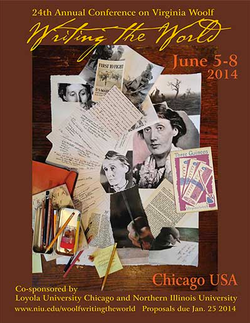 Raghav Kaul, who was a student in my English 1102 "Digital Woolf" course in the fall of 2013 at Georgia Tech, will present his paper, “The Subject-Object Relationship—Using Woolf to Understand Colonial Dichotomies and Postcolonial Critique,” at the Annual Conference on Virginia Woolf held in Chicago this June. You can read more about it in the TECHStyle posting, "English 1102 Student Raghav Kaul to Present at Virginia Woolf Conference." 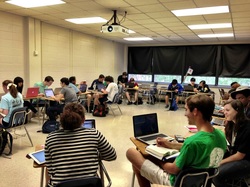 Since my Georgia Tech students also created so many fascinating projects in the fall, I have included some of my Digital Woolf assignments below. You can also read more about the course and the Mapping Jacob's Room assignment here. Project 1: Place in Howards End Project 2: Mapping Jacob's Room Project 3: Mapping Jacob's Room Presentations Project 4: Woolf Apps Blog Posting Instructions, Blog Posting 1: Geographical Scavenger Hunt in Howards End, and Blog Posting 2: "Only Connect" Assignments Blog Posting 3: Mapping Mrs. Dalloway Blog Posting 4: The Hours Blog Posting 5: Writing about To the Lighthouse Using Leslie Stephen's Photograph Album 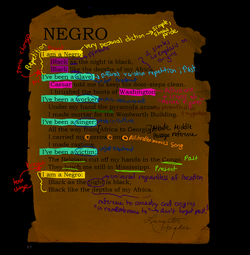 Because my students have completed so many different kinds of assignments in my African American Literature: From the Harlem Renaissance to the Digital Present course at Georgia Tech this term, I have included some of the assignments below. The project rubric was developed by Georgia Tech's Writing and Communication Program. The image to the left was made by one of my students (shared with permission). Blog Posting Instructions Blog Posting 1: Langston Hughes Blog Posting 2: Their Eyes Were Watching God Blog Posting 3: Their Eyes Were Watching God Film Blog Posting 4: Investigating the Years of Toni Morrison's Sula Blog Posting 5: Pearl Cleage's Manuscripts Blog Posting 6: Cornelius Eady Visits Georgia Tech Project 1: Harlem Renaissance Digital Resources Project 2: Harlem Renaissance Digital Resources Presentations Project 3: Interviews with Contemporary Writers This spring I will be leading a Great Works Seminar on Virginia Woolf's A Room of One's Own (1929) at Emory University's Fox Center for Humanistic Inquiry.
|
